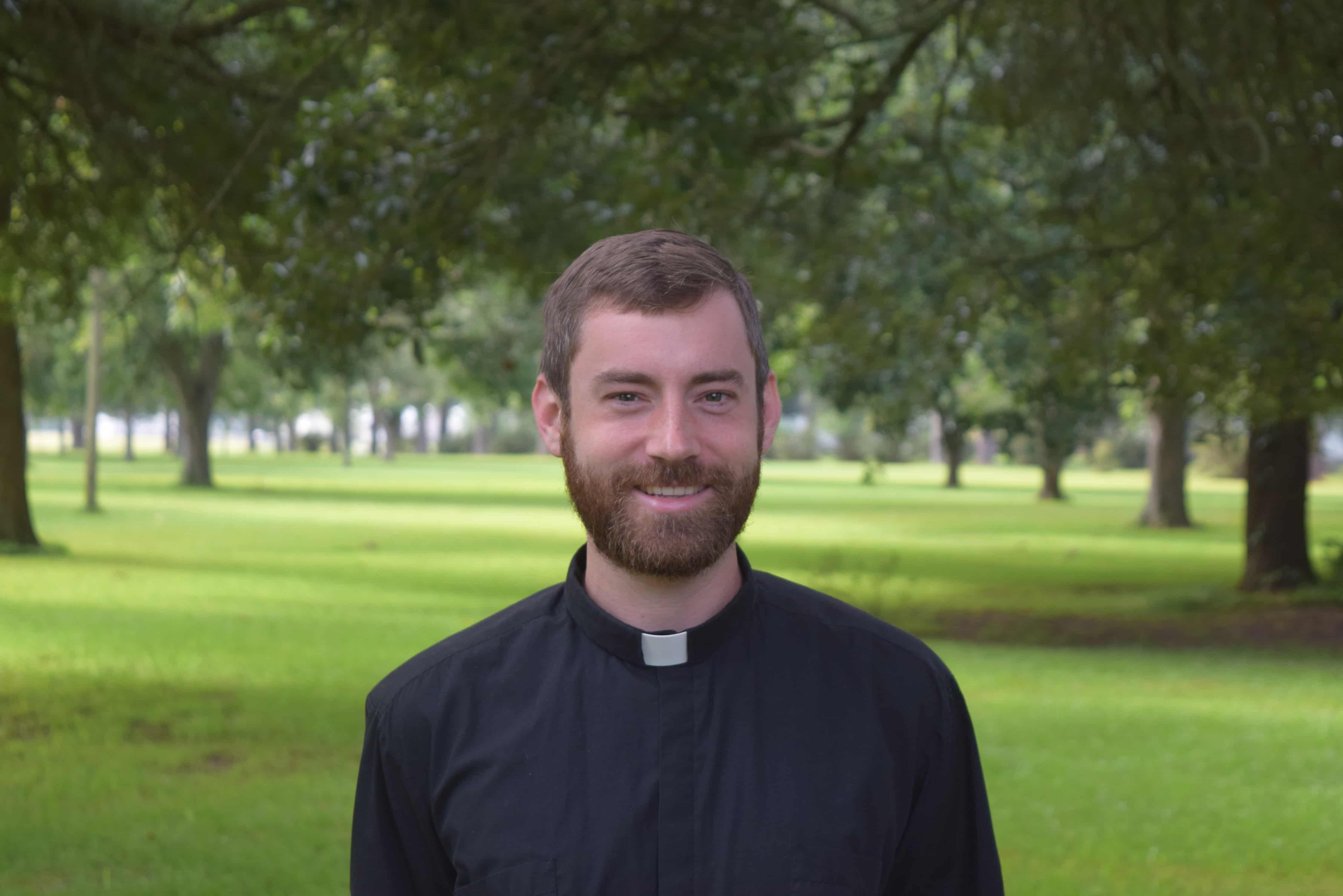Mission Reflection: God Is Most With Us When Things Are a Mess
If there is one thing that we know about the human condition with any certainty, it would be that it is messy. But, how does God see the mess? And even more important, how does God respond?
For Kevin Kuehl, S.J., meditating on passages from The Spiritual Exercises by St. Ignatius Loyola have allowed him to reflect on those questions.
He was drawn to this theme because “I feel like the Exercises are a particularly distinctive part of Jesuit life. We are called by our charism to continually share them with the world.”
A Memphis native, Kuehl is in his first year at SLU, studying philosophy. He has previously written about his experiences as a pilgrim to the U.S./Mexico border for SLU’s Newslink and The Jesuit Post.
In Kevin’s Words
If there is one thing that we know about the human condition with any certainty, it would be that it is messy. But, how does God see the mess? And even more important, how does God respond?
During my pilgrimage as a novice, I got an insight into the answer to these questions in, of all places, Las Vegas. Imagine this: the famous Las Vegas strip lined with extravagant hotels, casinos with flashing lights and ringing bells, advertisements on everything, and people packing the sidewalks. If you’ve never been to Vegas, just take whatever image you have in your mind and multiply everything by at least ten. It’s all exaggerated, and it’s all fake: a fake Manhattan skyline, fake canals of Venice, fake Rome.
So here am I, a solitary pilgrim passing anonymously through an American Nineveh, a surreal showcase of every sin that corrupts our culture: consumerism, sexism, elitism, hedonism, relativism, racism, egotism. Every person I pass yearning for something, trying to fill that vacuous void with so many empty things: material things, money, drinks, drugs, gambling, sex. They want it to feed them, but it just eats away instead. This world is certainly a mess.
Just three months earlier among the tranquility of live oaks and Spanish moss at the Jesuit novitiate in Louisiana, I was wading through this mess in a different way. It was my own mess that I encountered as I prayed for thirty days in silence.
For Jesuits one of the most important elements of our lives is our experience of the Spiritual Exercises of St. Ignatius of Loyola. Thirty days. Silence. You and God. Through a series of meditations, the Exercises guide a retreatant in an examination of his or life in relation to God. Among these various imaginative prayer exercises that characterize Ignatian spirituality, there is one that I continually return to: the Incarnation meditation.
It begins with God seeing the world as it is with its variety of people, old and young, rich and poor, and those doing good and evil. I imagine that walk through Vegas, or the rubble of never-ending wars, or the hungry child sitting in the dust. Imagine what God feels looking upon what we have done with this gift of Creation. Is this what God had in mind?
In His tender compassion, God will not let this chaos continue without a response. When He sees the mess we’ve made, God could justifiably react by wiping us from the earth and starting over. But, what, instead, does God do with us in our sinfulness? In His infinite mercy, God takes a different route—a means so insane and so loving that it could only be divine. He decides to come close (as close as He possibly can) entering into the fullness of our humanity.
That is why I keep coming back to the Incarnation. God leaps into our lives. It is the heart of the Christian story, and as I discovered during the Exercises, it is the heart of my story.


















